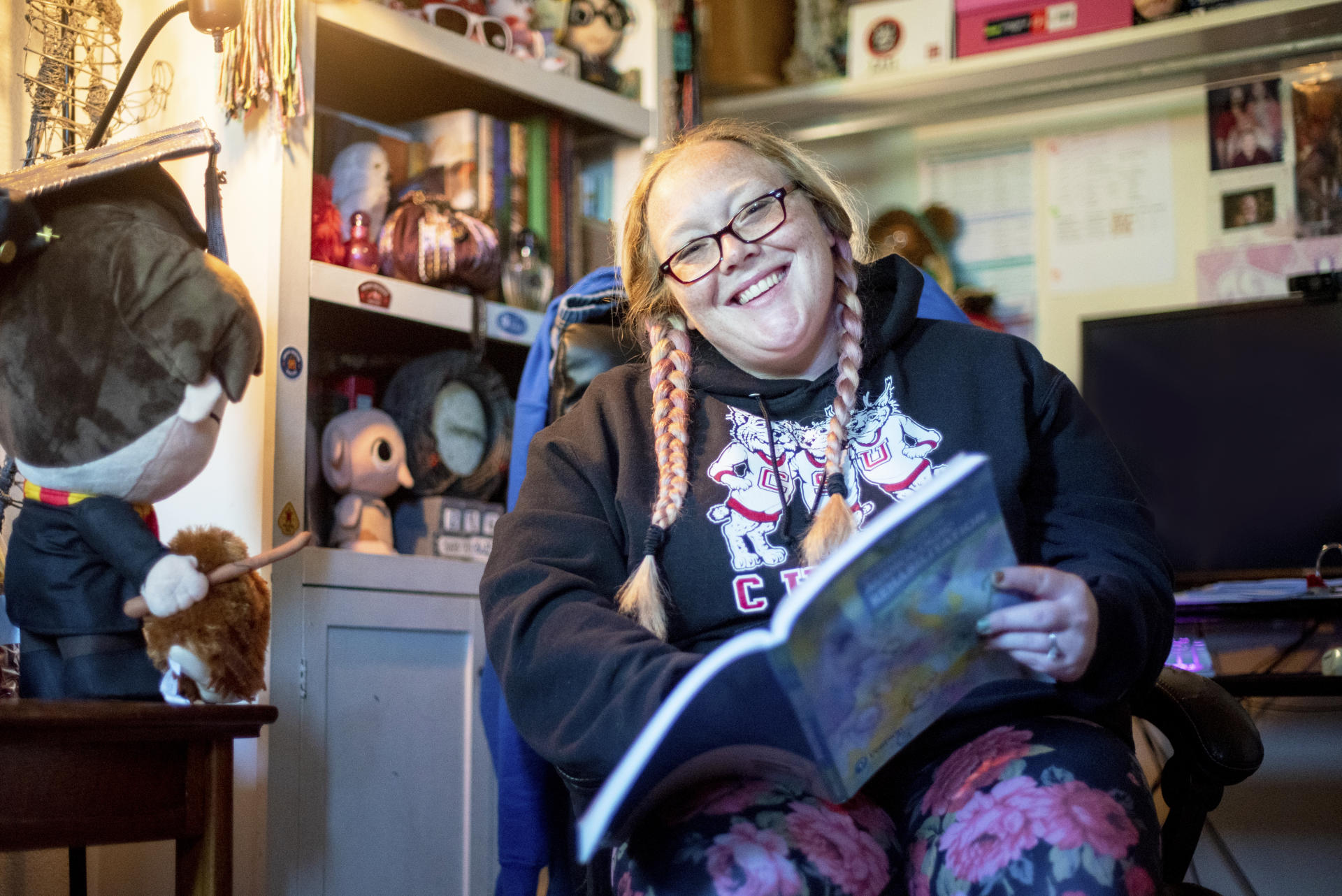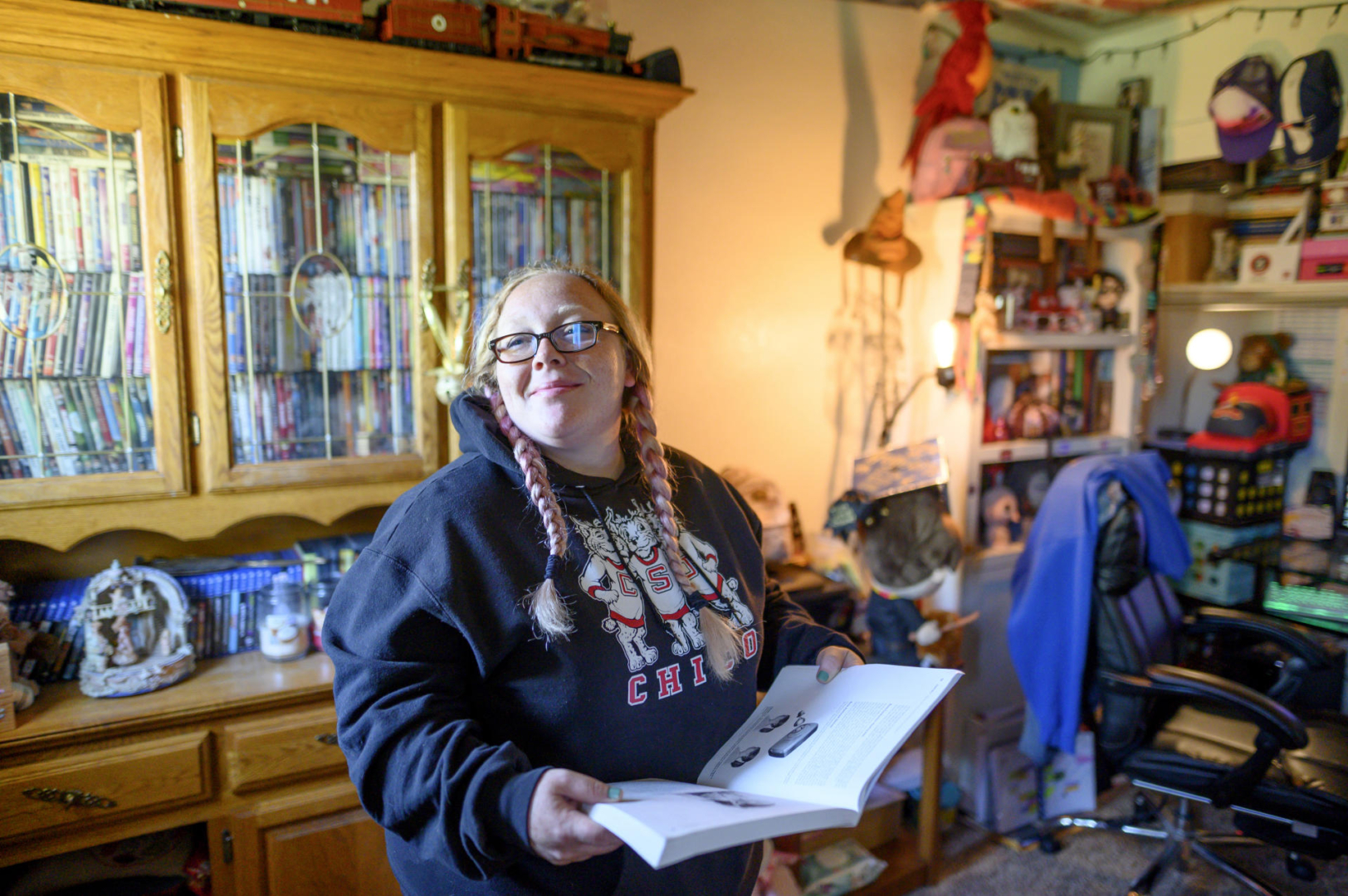Son’s Struggle Drives Mother to Study Communication Science

Communication Sciences and Disorders student Chantel Bebee is photographed in her home on Wednesday, April 21, 2021 in Chico, Calif. (Jessica Bartlett/University Photographer)
Every year, students drop out of the education system due to life circumstances, parenting challenges, substance abuse, and other obstacles. It takes a special kind of grit for them to return and finish their degree. This is one of four profiles of reentry students who refuse to give up.
Walking onto the Chico State campus as a 29-year-old student two years ago, Chantel Bebee was thankful her circuitous journey brought her here. But a nagging question persisted: Did she actually belong?
“I thought, ‘What am I doing?’” recalled the married mother of two. “‘Look at all of these smart individuals who are 10-plus years younger than I am. What am I thinking?’”
Two years later, the communication sciences and disorders major is on the precipice of earning her degree. This accomplishment follows a list of accolades, including membership in the National Society of Leadership and Success, serving as its president over the last year, and receiving the Osher Reentry Scholarship—all while earning straight A’s.
With her family living solely off her husband’s income, the scholarship support allowed Bebee to stay at home with her children while continuing her studies virtually during the pandemic. As a self-described “neuroscience geek,” she is specializing in neurogenic communication disorders—an area that fascinates her on multiple levels and drove her path to Chico State in the first place.
In 2017, Bebee’s then-3-year-old son, Michael, was diagnosed with a severe case of Autism Spectrum Disorder. His vocabulary growth stopped, he was largely nonverbal, and he required around-the-clock care to ensure his personal safety.
Not fully understanding what the diagnosis initially meant, Bebee was at a loss, feeling devastated by the news.
She said she thought at the time, “My child will never have any hopes of communicating with any human being on the planet, and he’ll just always be locked away in this other world of his.”
Determined to find a way to facilitate nonverbal communication with Michael, Bebee took American Sign Language (ASL) and communication classes at Shasta College—and it worked. In learning ASL, her son was once again communicating with her, progressing so much that he began uttering sounds while he signed and is now able to verbalize a few phrases.

And when Michael looked into his mother’s eyes and said, “Mama”—three-and-a-half years since the last time he lovingly said the word—Bebee knew all the hard work was worth it.
“It was amazing,” she said. “It gave us hope when we needed it the most.”
It also inspired her to continue her own developmental journey. Bebee found Chico State’s Communication Sciences and Disorders program and its Clinic for Communication Disorders, which provides no-cost speech and language diagnostic and intervention to individuals across Northern California. The program’s hands-on learning affirmed her desire to become a medical speech- language pathologist, working with aphasiacs and those recovering from strokes, among other clients. In that role, she hopes she can help others just as she has helped her son.
“Communication helps to form our concepts of who we are, helps us to understand the world around us through using arbitrary symbols to convey a shared meaning to one another, and it helps us to problem-solve and learn new things,” she said.
After graduating this spring, Bebee will pursue her master’s degree in speech-language pathology—she has already been accepted into programs at Chico State, the University of Vermont, and Boston’s MGH Institute of Health Professions, a sister school of Harvard University.
Her passion and aptitude will no doubt further her success, faculty say, noting those same students who once intimidated her are now inspired by her.
“Chantel is always willing to share her life experiences that enrich the discussion,” said professor Jessika Lawrence. “She is a natural leader and a thoughtful classmate who wants everyone around her to succeed.”


